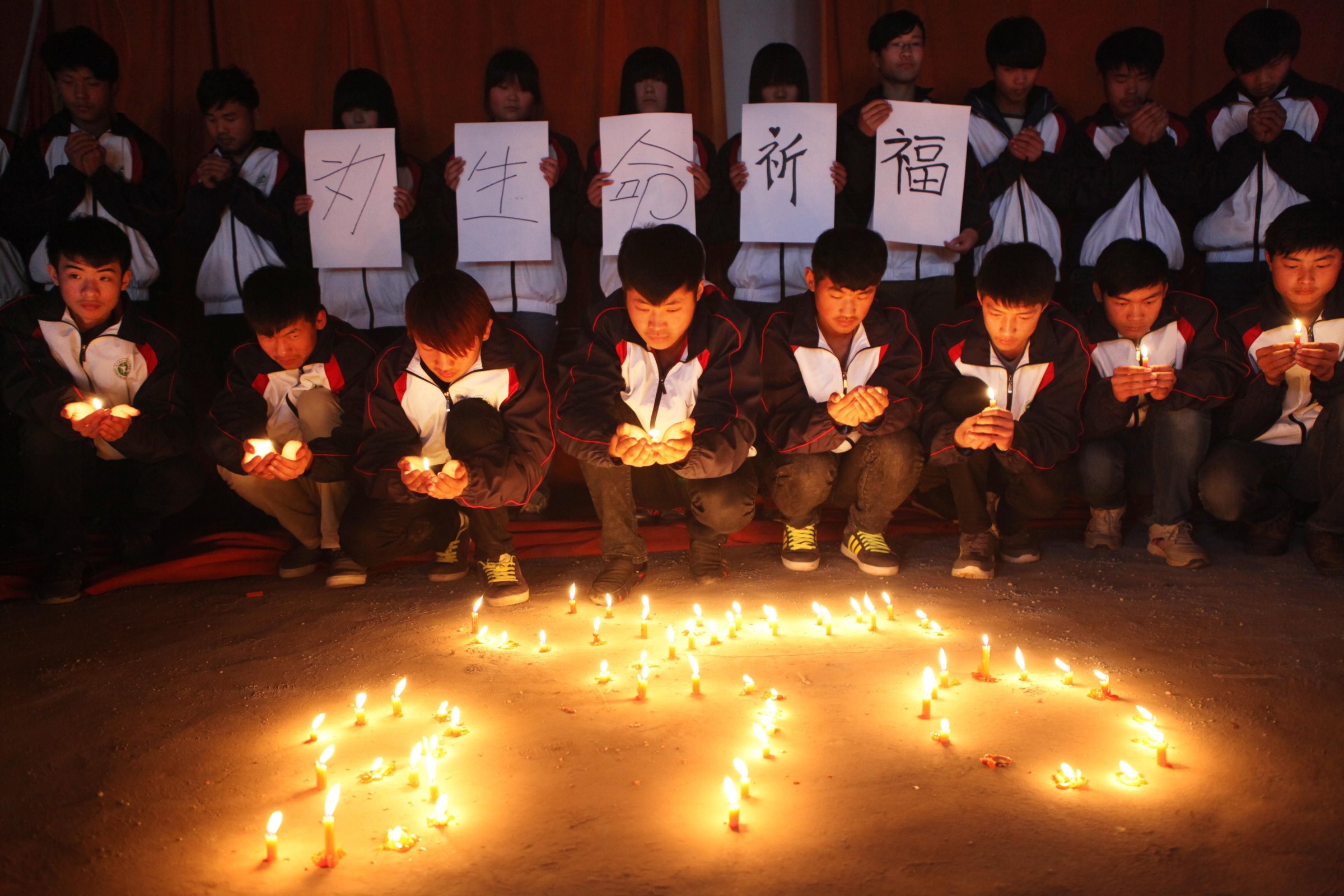
To fly is to confront our fears. Some anxieties we do not analyze too thoroughly or we would never confine ourselves to a metal tube hurtling through the skies at 35,000 feet. Trepidation also comes in cosmic terms, like the inevitability of gravity or the jetlag that results from spanning time zones. Still other concerns we keep to ourselves, embarrassed to admit we even consider them: worrying about a man who looks shifty-eyed at airport security only to end up sauntering onto the flight; or glimpsing through the cockpit window at a pilot who looks far too young to be commanding hundreds of lives.
The 239 passengers and crew who boarded Malaysia Airlines Flight 370 were a human mosaic of our globalized times. They were any of us. Some on the March 8 red-eye were frequent fliers, traversing a popular trade route from the Malaysian capital of Kuala Lumpur to Beijing. Most were members of China’s new middle class, thrilled at a tropical respite from a smoggy winter back home. Two passengers, it turns out, were Iranians traveling on stolen European passports in hopes of starting new lives in the West. A few expatriates living in Beijing filled out the Boeing 777’s manifest, like a Canadian couple returning from a romantic Southeast Asia holiday. The pair had left their two young sons at home, the elder child—like so many boys everywhere—intoxicated with just how cool airplanes are.
Along with a dozen Malaysian crew, five children under the age of 5 and a cargo hold filled with tropical fruit and lithium batteries, MH 370 took off from Kuala Lumpur International Airport (KLIA) at 12:41 a.m. Less than an hour later, the plane basically vanished. On March 24, Malaysia’s Prime Minister Najib Razak announced that, based on extensive satellite-data analysis, MH 370 had crashed into the southern Indian Ocean after a mystifying seven-hour journey totally off the flight path. For the families and loved ones of those on the plane, hopes of life, however infinitesimal, were extinguished. No accounting of MH 370’s uncertainties will diminish the grief of the relatives and friends of the passengers and crew.
For the rest of us, the inchoate fears of flight we all share, no matter how many airline miles we have racked up, coalesced into a sharper dread. The Boeing 777 is one of aviation’s most dependable planes. Malaysia Airlines is subsidized by the government, but it’s no third-world carrier; it is one of only seven airlines worldwide awarded five stars by air consultancy Skytrax. The flight’s pilot, Zaharie Ahmad Shah, 53, joined the carrier at age 20 and had accumulated more than 18,000 flight hours. Security at KLIA may not be as rigorous as in the U.S., but it isn’t notoriously lax either. How could someone board, as the Malaysians have indicated, only to deliberately divert the plane?
As we dissect the failings that led an airliner to dive into the water, we must remember that whatever technical or security lapses occurred, the case of MH 370 is, above all, a human tragedy. And we must balance a need for security with a preservation of faith in humanity. In police states, there is no confidence in the good of the people. Swathed in surveillance, these places do not bestow upon their citizens a chance to think or express themselves freely. Hatred and extremism exist in all societies, but they flourish most in the meager soil of authoritarian governance.
In many ways, KLIA, the airport from which MH 370 departed, is a symbol of our modern, multicultural world. The world’s 11th busiest airport in terms of international passenger traffic, KLIA is a showcase of a state composed of majority Malay Muslims and sizable Chinese and Indian populations. True, Malaysia has suffered its share of race riots and has hunted down Islamic terrorists among its population, and the nation’s leadership is too cloistered, with one political alliance dominating power ever since independence. But the 38 Malaysians on board, as well as the 13 other nationalities on the flight, hewed to multiple faiths and held many dreams. They included a couple on a belated honeymoon, and an IT specialist who promised chocolates for his children upon return from a business trip in Beijing. For them, as for us, flying was not only about vanquishing fear but also relying on trust. Only with such suspension of disbelief can we soar.
More Must-Reads From TIME
- The 100 Most Influential People of 2024
- Coco Gauff Is Playing for Herself Now
- Scenes From Pro-Palestinian Encampments Across U.S. Universities
- 6 Compliments That Land Every Time
- If You're Dating Right Now , You're Brave: Column
- The AI That Could Heal a Divided Internet
- Fallout Is a Brilliant Model for the Future of Video Game Adaptations
- Want Weekly Recs on What to Watch, Read, and More? Sign Up for Worth Your Time
Contact us at letters@time.com